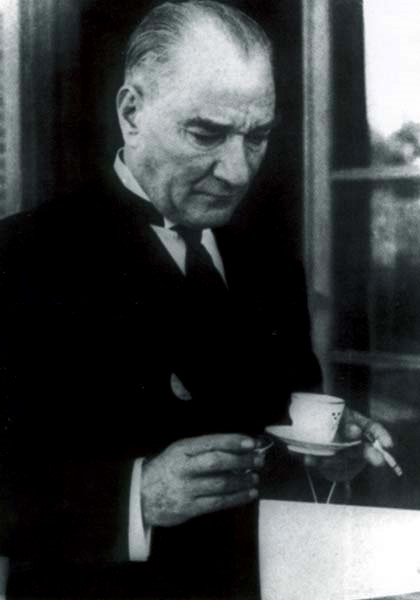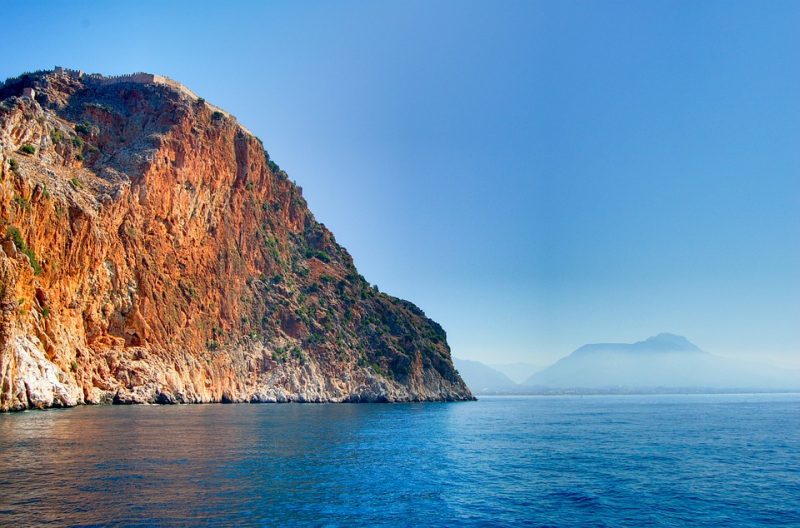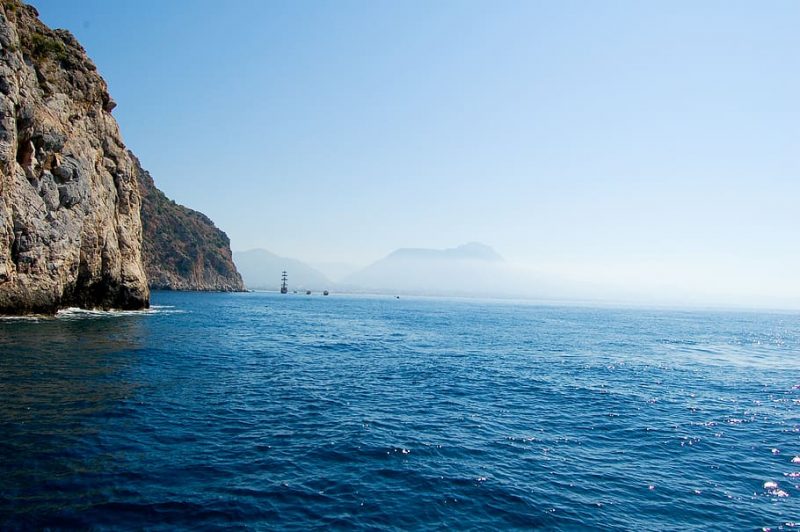In the context of the ongoing geopolitical competition in the Eastern Mediterranean, the two central concepts constantly emphasized by Turkey’s opponents (especially in Greek and FETO controlled media) are revisionism (a stark reversal of the current geopolitical conditions) and Neo-Ottomanism. The Blue Homeland, my brainchild, is often lumped into the same category with these ideologies, especially after the Memoranda of Understanding (MoU) of maritime delimitation and military cooperation & security with Libyan Government of National Accord (GNA). Let’s cut straight to the chase: the concept of the Blue Homeland is not even remotely related to Revisionism nor Neo-Ottomanism. However, this statement should not be considered as a rejection of our own history or past: I am proud of our past our tradition of empire-building, and feel great honor belonging to a nation with a 5000-year history. I feel the honor of being a Turk with my every breath. As a result, I am a staunch follower and defender of the immortal leader Mustafa Kemal, who led the great war of independence and then presided over the 15 years of Turkish Renaissance that sprouted among the wreckage of the collapsed and destroyed empire.

Wikipedia
NEO-OTTOMANISM IS A FANTASY
The Republic, which is quickly approaching the 100th anniversary of its foundation, cannot and should not engage in fantasies of an Ottoman renewal. Although some politicians that came to power in the post-Cold War era had dreams of establishing a new Ottoman course, something like this would only ever be possible on a cultural level. We share a common heritage based on the religion and traditions of the Balkan, North African and Middle Eastern countries that broke away from the Ottoman Empire, yet, it would be almost impossible to establish a political structure similar to an Ottoman Commonwealth in the 21st century. On the other hand, to establish a functional cooperational structure with our kinsfolk in the Balkans and Asia under the umbrella of the Turkish World is a geopolitical reality worthy of consideration.
MUSTAFA KEMAL’S REVISIONISM IS REAL
The Republic is a secular nation-state founded on the ruins of the Ottoman empire. The demographic structure continues to be informed by the Misak-i Milli (National Oath) made during the last term of the Ottoman Parliament, and the thesis “the people who founded the Republic of Turkey, are called Turks.” On the other hand, the nation’s security and foreign policies are guided by the philosophy of “Peace at Home, Peace in the World,” which has never led Turkey toward revisionism. Mustafa Kemal’s decision to establish full sovereignty over the Turkish Straits with the Montreux Convention and incorporate Hatay within its national borders were the essential and inevitable consequences of his geopolitical context. If he had lived long enough, he likely would have also solved the problems of Mosul and Kirkuk. Afterward, the Republic kept away from Cyprus and the Eastern Mediterranean until the Bloody Christmas of 1963, having been a loyal member of NATO.
If Bloody Christmas had never happened, it would have been too late for the Navy to deploy in Mersin along the Mediterranean coast. In 1950, while the Greeks held a plebiscite for Enosis where 96% of the island’s population voted in favor of it: Turkish Cypriots demanded minority rights. A Turkish Minority Association was even established in Cyprus to this end. While Ankara could say in 1951 that it “does not have a Cyprus problem,” in 1964, it expanded its territorial waters in the Aegean from 3 miles to 6 miles following Bloody Christmas and seriously strained Turkish-Greek relations.
They could not have known that reducing the area in the high seas (from 79% to 49%) would weaken their cards in the future when it came to the partitioning of the continental shelf. Later on, a righteous awakening began, and the 1974 Cyprus Peace Operation was carried out in full accordance with the international law in order to prevent a major genocide from taking place. If Turkey were revisionist, it would have occupied the entire island and completed integration with the Turkish Cypriots at some point. Integration aside, segregation from Cyprus was achieved, despite the proclamations of Turkish Republic of Northern Cyprus (TRNC), in 1983.
The imperialist bloc could not abide this development, and attacked harder. We were patient, and did not even object to the one-sided accession of Greek Cypriots to the EU in 2004, which was completely contrary to the foundational agreements: this was actually another form of Enosis, and so Turkey settled on simply condemning the action. Later on, however, the tyranny grew unimaginably. In the spring of 2004, the EEZ was proclaimed, and then, in the winter of 2007, even the areas that were accepted as part of the Turkish continental shelf were opened to hydrocarbon drilling by the Greek Cypriots.
THE GEOPOLITICAL AWAKENING OF JULY 15
This year, we began the third decade of the 21st century, and in it we are faced with a totally new political and cultural context. After FETO’s failed coup attempt on July 15, 2016, Turkey rapidly began to take its true place in this new world. Turkey’s relationship with Russia, China and Iran is shaping this new world through their interactions in Syria, Northern Iraq and the Eastern Mediterranean. Turkey is experiencing a low-intensity, proxy war-centered conflict in the regions which it borders, namely Northern Iraq and Syria. This battle is not taking place between the regular armies of the sovereign nation states, but rather, through their surrogates. At the same time, the struggle over maritime jurisdiction over the Eastern Mediterranean Sea has turned into a clash of with geopolitical implications, and here, the conflict is direct. The fight is ultimately about cutting Turkey off from its Blue Homeland in the Eastern Mediterranean.
The Turkish nation, which succeeded in achieving its liberation and statehood in a short period of time, with its drive to protect its homeland and tear the Treaty of Sevres to shreds, now, in the 21st century, can and must repel this assault in the Eastern Mediterranean. This roughly 462,000 square kilometer area that constitutes the region of our maritime authority not only offers us the potential for economic wealth, it also provides our state with space for a deep defense strategy and geopolitical maneuvering capability on our peninsula.
THE BLUE HOMELAND IS OUR NEW NATIONAL OATH
Defending the Blue Homeland for future generations is neither Revisionism nor Neo-Ottomanism. In short, the Blue Homeland is the National Oath of the seas. In today’s day and age, what statesman or politician would allow 150,000 square kilometers of future generations’ maritime area in the Eastern Mediterranean to be stolen? However, a systematic attack is underway under the rubrics of Revisionism and Neo-Ottomanism and against the concept of the Blue Homeland. The truly distressing thing is that the opposition to the Blue Homeland is willing to rely on domestic crypto-FETO sources and its foreign counterparts in order to influence domestic politics.

Pixabay
THE BLUE HOMELAND IS THE NAME OF A GEOPOLITICAL PROCESS
The Blue Homeland is a process aimed at strengthening Turkey’s geopolitical control over the Eastern Mediterranean, the Aegean Sea, Black Sea and the Straits, appropriately situating our nation in the transition from the Atlantic era to the Asian era and the transition from a unipolar to a multipolar world. While this process will help defend our geopolitical integrity in the areas of our maritime jurisdiction, it will also help to thwart attempts to undermine the Montreux Convention, such as Canal Istanbul. On the other hand, the Blue Homeland is the name for a gateway into new opportunities and innovations within the context of global, continental and regional relations that Turkey could develop over the Caspian Sea-Black Sea-Eastern Mediterranean Sea-Red Sea-Oman Sea axis.
It is also a symbol of Turkey’s general process of maritimization. In short, the Blue Homeland is the name of Turkey’s 21st century geopolitical strategy. Neither the spirit of the times, nor the burning geopolitical conditions of the present will allow the Blue Homeland to be associated with or reduced to Neo-Ottomanism or Revisionism.
A MARITIME TURKEY WILL TAKE ITS LESSONS FROM HISTORY
It is unimaginable that in Turkey’s maritimization process, it would follow in the footsteps of the Ottoman Empire, which collapsed precisely because it never became a maritime state. Turkey can, however, learn from this history. The Navy of the Republic, which has been constantly growing and modernizing with new strategies, armaments and doctrines after the Cold War, is ready for today’s struggle in the Eastern Mediterranean. The developments in our Defense Industry, the size of our population and our place in the G20, has naturally made this process evident to the world and ensured deterrence.

PxFuel
THE BLUE HOMELAND AND TURKISH-RUSSIAN COOPERATION
As Turkey breaks away from the Atlantic system and approaches West Asia, it will continue to be accused of Neo-Ottomanism and Revisionism. This is because Turkey’s opponents still want to see it as the submissive, rimland Country of the Atlantic alliance system. They want to turn Turkey and Russia against each other and make them geopolitical rivals by undermining their strategic cooperation. Let us remind Greek and FETO media sources that accusing Turkey of Neo-Ottomanism, Revisionism and Islamic imperialism could provoke hostile towards Turkey among the masses. In the 21st century, our region (and the rest of the world) needs peace and stability. Fostering the climate of the Crescent-Cross conflict in the Eastern Mediterranean does not benefit humanity, especially given that this conflict sees Muslims killing other Muslims and Arab countries such as Saudi Arabia, the UAE and Egypt as strategic allies of Israel. These accusations drive the masses away from reason, virtue and wisdom. No war can be won with fanaticism alone. The secular, democratic Republic of Turkey, following in Mustafa Kemal’s path, strengthened by the Turkish-Russian partnership forged in Libya and Syria, will be the greatest antidote to this fanaticism. In this process, the government, the opposition and all members of society should help steer the country and the region toward stability.

















Leave a Reply